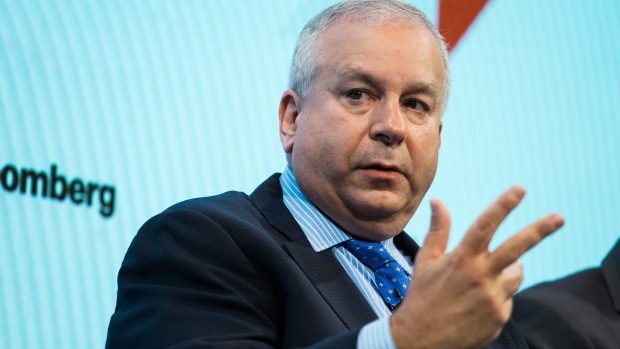Jul 11, 2018
Rosenberg on rate hike: 'I would have done absolutely nothing'

The Bank of Canada may have widely telegraphed its desire to raise interest rates, but whether Canada needs to raise rates in step with the U.S. is much less clear, said David Rosenberg, chief economist and strategist at Gluskin Sheff + Associates.
“I don’t really completely understand why it would be the Bank of Canada – of all central banks – that would be following the [U.S.] Fed in raising rates,” Rosenberg told BNN Bloomberg in an interview Wednesday. “If it were my vote for today I would have done absolutely nothing.”
The Bank of Canada raised its overnight benchmark rate by a quarter-point to 1.5 per cent on Wednesday, its highest level since 2009. It is the second interest rate hike this year and fourth increase over the past 12 months.
Many economists predict three or four more rate increases by the end of 2019, which would keep the Bank of Canada in step with the U.S. Federal Reserve’s expected pace of rate hikes.
The rationale for U.S. rate hikes is simple, Rosenberg said, citing how recent U.S. corporate tax cuts have been adding “gargantuan” fiscal stimulus to the U.S. economy at a time of strong employment.
Canada’s economy, on the other hand, continues to face headwinds from increased trade risks, a potential slowdown in the once-hot housing market and an expected slowdown in consumer spending as higher interest rates take hold, Rosenberg said.
HAVE YOUR SAY
What’s the biggest threat to Canada’s economy?
“There have only been two monetary authorities in the developed world this year that has raised interest rates – there has been the [U.S.] Fed and the Bank of Canada and frankly, I don’t know what makes the Bank of Canada so special,” he said.
Bank of Canada Governor Stephen Poloz said the rate hike was appropriate since Canada’s economy is operating near capacity and inflation is on target. However, Rosenberg said Canadian inflation data has been skewed by high gasoline prices, the prior impact of a weak Canadian dollar and recent minimum wage increases in provinces like Ontario and Alberta.
“You net that out and inflation is going nowhere [in Canada],” he said.
Raising interest rates will almost certainly slow consumer spending, and there is no guarantee that Canadian business investment will increase to offset that – especially in the face of increased global trade tensions, Rosenberg said.
“In a global trade war, or the risk of a global trade war, the U.S. would be the smartest kid in summer school,” he said. “Canada has a much higher export dependency and of course if we get the tariffs on the auto sector it would undoubtedly throw Canada – and certainly Ontario – into a recession.”




